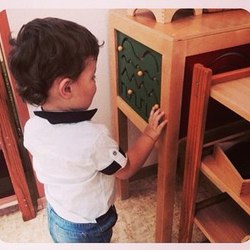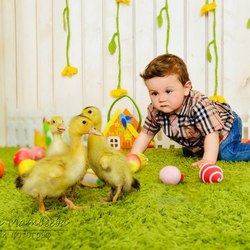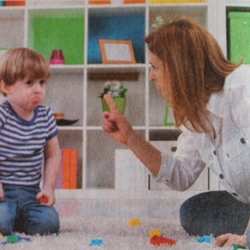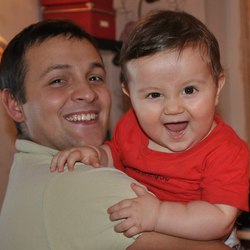The development of logic in children. Exercises and recommendations
 The development of the logical thinking of a child is no less important than their mastering of reading, writing and speech skills. Logic for children is the basis of good intelligence, it helps to think extensively, analyze, reason, compare and draw conclusions. The formation of the logical skills of the child should be paid attention from an early age.
The development of the logical thinking of a child is no less important than their mastering of reading, writing and speech skills. Logic for children is the basis of good intelligence, it helps to think extensively, analyze, reason, compare and draw conclusions. The formation of the logical skills of the child should be paid attention from an early age.
Thus, a small person will be able to better understand the world around us, to receive a harmonious and comprehensive development. In this article we will show you how to develop logical thinking in a child, provide exercises and recommendations on this topic.
Exercises – games for the development of the logic of children 1-2 years
Logic games with a baby up to 3 years old should be simple, visual and encourage him to act.
Fold together a few toys and dishes. Ask the child to choose from them, for example, all the dishes, leaving the toys in place. Gradually increase the number of categories by adding fruits, vegetables, clothes, etc.
Sort items by different signs (shape, color, size). For example, take 8 dice: 4 red and 4 green. Let the baby put the red in one box and the green in the other. Over time, the exercise can be complicated: increase the number of objects, their signs (add large and then more pyramids to small cubes), as well as increase the number of variations of a single attribute (take the cubes not 4 colors, but 4-5).
For several animal toys, add, for example, a ball or typewriter. The task of the child: to find an “extraneous” object.
Logic exercises for children 3-4 years
The development of logic in children of this age category is based not only on visual, but also verbal-figurative perception. Therefore, to play with objects safely add oral tasks.
Show the child a drawing showing 5-6 items, one of which does not fit the rest on some basis. The kid should name this item and explain why he considers it superfluous.
You say a few words, and the child must determine by ear what word to exclude. For example: “a cat, a cow, a ball, a dog, a horse”. Now complicate the task a bit: “tomato, cucumber, apple, cabbage”.
Stand with the child opposite each other. Pick up the ball. When you call the word “edible”, the baby must catch the ball, and if “inedible” – beat it off with your hands. When this occurs, not only the development of logic in the child, but also improves attention, responsiveness and motor skills.
Ask your child logical questions, pushing him to think. For example: What is needed to make soup? How to find out if it is raining outside?
Exercises for the development of logic in children 5-6 years
Classes with kids of this age can include simple tasks with numbers, more complex questions and speech games, as well as various graphical games.
Name one word, for example, “room.” The child needs to pick up as many other words as possible which, in his opinion, refer to him: bed, table, floor, wall, etc.
Draw a clock face or a phone dial with incorrectly spaced numbers. Let the kid draw the numbers in the correct order. Ask also count the number of chairs in the room or, say, cubes of a certain color, machines in the garage.
Lay out a few pictures in front of the child and ask each to come up with 1-2 sentences to make a small story.
The logic of various puzzles is well trained in logic: to find differences in two pictures or similar objects, find a way out of the maze, draw the missing fragments of some object, continue the logical series and so on.
Logic exercises for children from 7 years
The development of logic in children from 7 years old should include more complex tasks for comparing, analyzing, generalizing, classifying, finding a causal link, developing abstract thinking and improving speech skills.
These can be tasks for inventing riddles, compiling a coherent story on the source words or a description of the subject, puzzles, various mathematical puzzles.
For the development of logic, it is useful to play checkers, chess with a child, to make puzzles of varying degrees of difficulty. Even simple games like tic-tac-toe and sea battle have a positive effect on the formation of logical thinking.
Finally, a few recommendations that will make classes more effective.
Try to work with your child every day, but not more than 20-30 minutes in a row, so as not to overdo it.
Play games in a fun, high spirits and show your interest to the kid.
Do not start training if your baby is naughty or feels tired.
The development of logic in children is a consistent and individual process. Therefore, if the baby does not get an exercise at all, simplify it or replace it with a less complex one.
And, of course, do not forget to encourage your child and praise for your success, in order to stimulate him to further activities.



